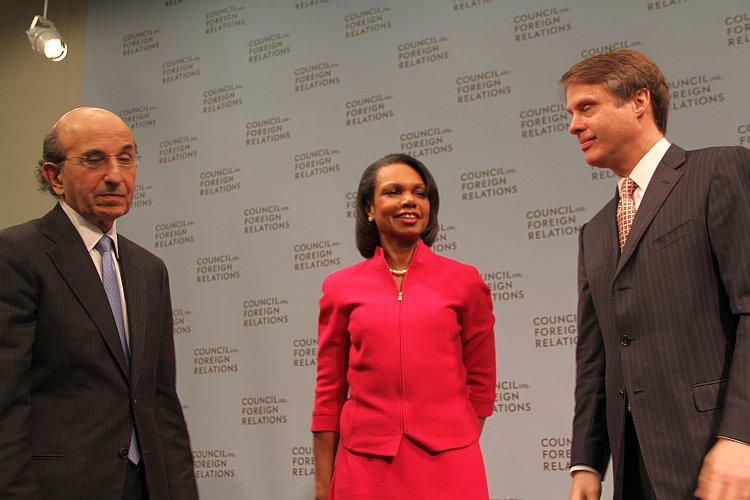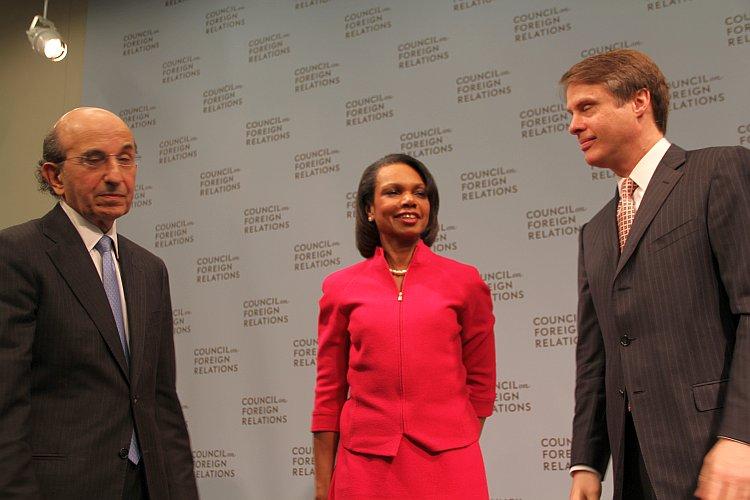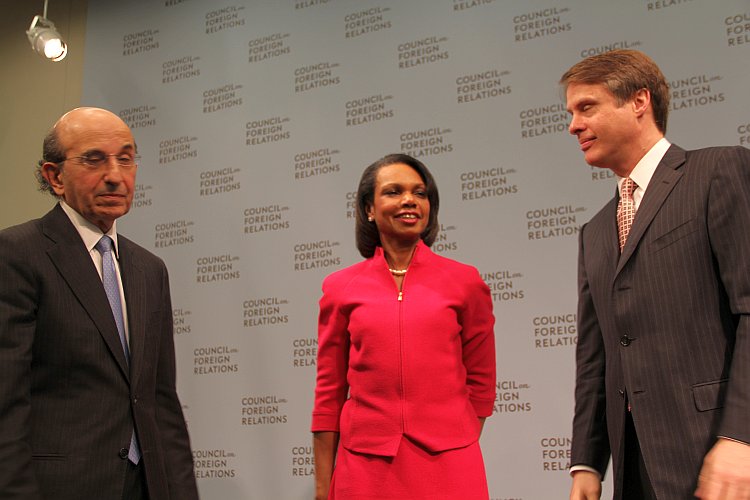WASHINGTON—U.S. educational levels have become so low that the country’s economic prosperity, global position, and physical safety are at risk, warned a Task Force chaired by former U.S. Secretary of State Condoleezza Rice and Joel Klein, CEO of education at News Corporation.
The country “will not be able to keep pace—much less lead—globally unless it moves to fix the problems it has allowed to fester for too long,” the Task Force said in a new report.
The report was produced by an independent research organization, the Council on Foreign Relations (CFR). Researchers found that 3 out of 4 Americans between the ages of 17 and 24 years would be ineligible for military service largely because they do not have the educational levels required.
“We’re drawing our national security forces from a very small segment of the population. And a lot of the problem is they simply don’t have the intellectual wherewithal to serve in the military,” said Klein, who is the former head of New York City’s public schools.
Klein and Rice were speaking at the launch of the “U.S. Education Reform and National Security” report, at CFR in Washington on March 20.
The U.S. State Department and national intelligence agencies are also facing critical shortages in areas of strategic interest and cybersecurity because of language shortfall and lack of technical expertise. There are 400 languages spoken in the United States, the report said, but 8 out of 10 students speak only English, and language studies are decreasing in schools.
The report reveals a downward trend when U.S. education levels are compared to those of other nations in the developed world. Students at 15 years of age in the United States ranked 14th in reading, 25th in math, and 17th in science in a 2009 Program for International Students Assessment. Students in Shanghai, China, also outranked U.S. students, the report said.
“We don’t tend to see ourselves that far down the list on almost anything else I can imagine and yet we accept that, somehow, for our schools and for our kids’ performance on math and science tests,” said Rice, who is a professor in the Graduate School of Business at Stanford University.
The report found that more than a quarter of all U.S. students fail to graduate from high school in four years. The number increases toward 40 percent for African-American and Hispanic students. Among college-bound seniors, only 43 percent meet college-ready standards, the report said.
“In America, it’s not where you come from, it’s where you’re going,” said Rice, but she said education, the key component of the American dream, was failing in its promise to provide equal opportunity.
Rice and Klein noted that many industries in America were not short of jobs, but that Americans were increasingly unqualified to gain them—highlighting another threat to national security.
“What unites us is that everyone gets a fair stake to be very, very good and to succeed. If you work hard, you can have a better life. That is key to our national cohesion—but if education can’t deliver on that, then there is no glue,” Rice said.
The report noted that the success of America’s public education system was critical to people’s belief in America and the functioning of its democratic system.
“National security today is closely linked with human capital, and the human capital of a nation is as strong or as weak as its public schools,” said the report.
The panel made three main recommendations to improve the system, based around expanding areas of need, widening choice of schools, and raising awareness.
Klein added to the recommendations, saying the system needed to be more flexible, innovative, and aspirational. He said, “excellence is not the driver, but seniority is.”
He remarked on the successes of other countries, saying those that did well had high standards and respect for teachers. We need to “upgrade, support, and continually train teachers,” he said.
The report included criticisms of some of the proposals from experts in the field. Some were concerned that the audits would create rigid standardized tests and reduce flexibility.
Randi Weingarten, president of the American Federation of Teachers, felt the report undermined the good work that public schools were doing, and that too much emphasis was placed on individual teachers who were already stretched.
Klein said he hoped the report would promote discussion about education in America. “I don’t think people have really thought about the national security implications.”






